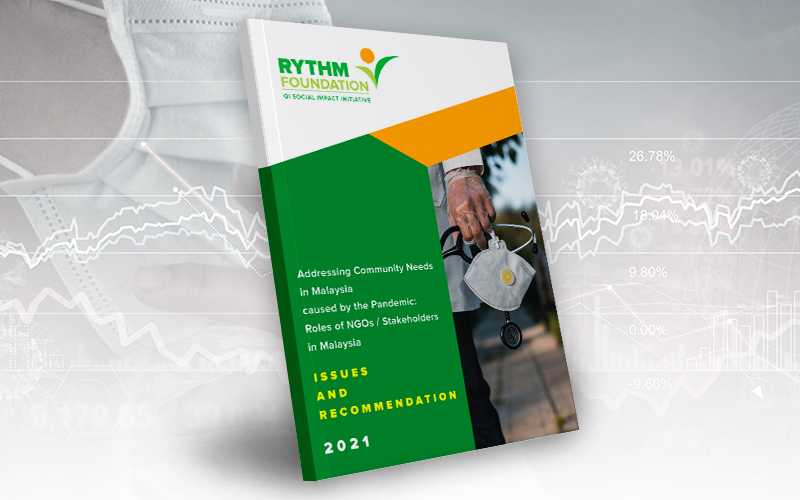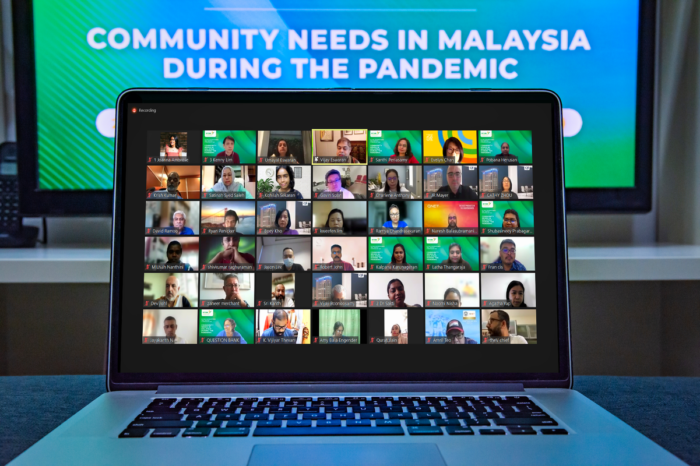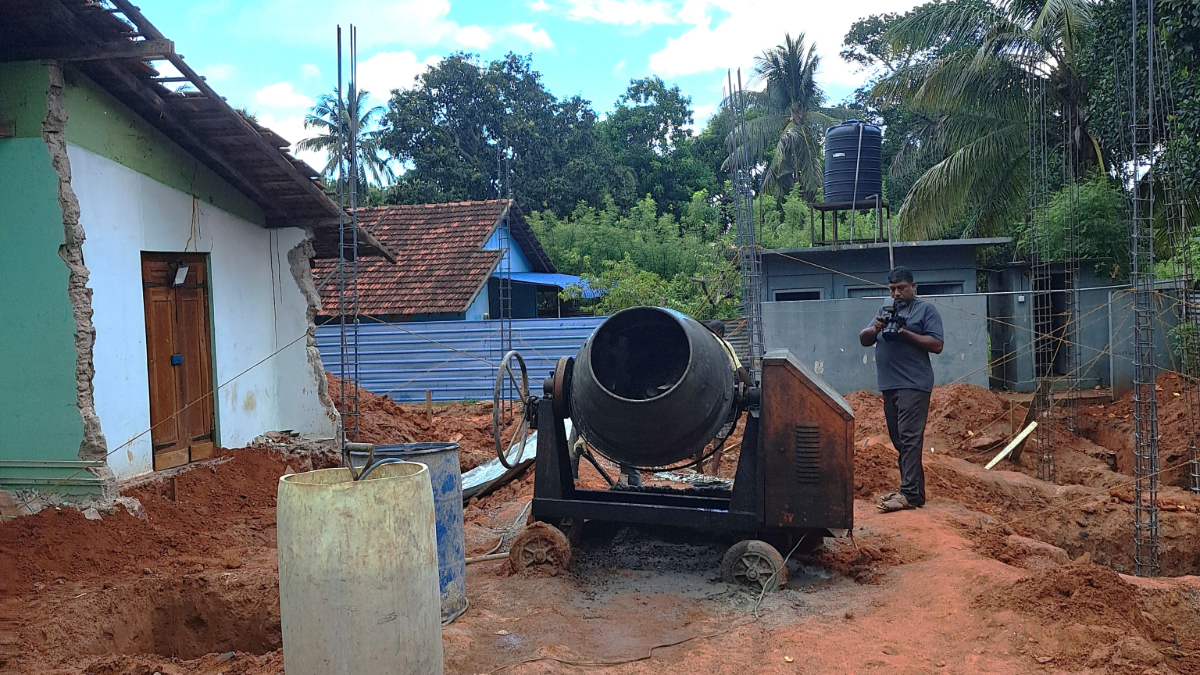As is the case worldwide, the COVID-19 pandemic has not only triggered a health crisis but an unprecedented economic recession in Malaysia.
As the financial ruin disrupted people’s livelihoods and the country’s economic resilience, Malaysia’s projected recovery path reportedly still faces downside risks from global uncertainties around the pandemic. For example, a World Bank report says the possible resurgence in COVID-19 infections with new variants could further dampen international and domestic recovery paths.
The ‘Malaysia Economic Monitor’ report states, “Immediate priorities should focus on continuing existing support measures and improving the breadth and depth of social protection systems.
“These priorities are crucial as the pandemic has exacerbated the challenges Malaysian households face, particularly the poor and vulnerable,” the report adds.
This statement drives home what RYTHM Foundation – the social impact arm of QI Group – documented months earlier as a crucial pandemic-induced issue. The profound impact of the economic slump on the underserved was one of the core themes deliberated during two symposiums on “Addressing Community Needs in Malaysia During the Pandemic” last February and September.
The meetings resulted in a Position Paper that details the framework and proposes medium- to long-term solutions to the Malaysian government. RYTHM hopes the recommendations are implemented in the 12th Malaysia Plan (2021-2025) to mitigate the impact of the pandemic on vulnerable groups.
Also read: Position Paper Addresses Pressing Pandemic Issues
Income and Welfare Constancy for the Underserved
Malaysia has acted decisively in building a substantial social protection response to the pandemic. Still, as the symposiums’ sessions on economic stability determined, extraordinary measures remain necessary to walk the tightrope towards economic recovery while ensuring stable post-pandemic incomes.
The nation’s last economic stimulus package, dubbed Pemulih (Recovery), was announced last June. The RM150 billion package included RM10 billion in wage subsidies, unemployment assistance and cash aid. In addition, several other financial initiatives to support the people, particularly the bottom 40 per cent of households (the B40 group), have been implemented over the last two years.
Also Read: RYTHM Foundation Conducts First Symposium with Malaysian Authorities & NGO
However, the academic, financial, and social welfare experts reflecting on the matter cautioned that most stimulus incentives focused on short- to medium-term relief for households and businesses. “The bulk of incentives lack a long-term focus on transformation and change. In addition, there are other problems involving accessibility and targeting strategies.”
The panellists also raised several other critical issues, chief among them the worrying trend of higher-income households falling into the lower bracket.
“Twenty per cent from the M40 group (middle-income households) moved to the B40 group (over the last two years). In addition, 12.5% of households earned less than RM2,500, and poor households increased to 639,800 families in 2020 from 405,400 homes in 2019,” the report said.
“With a significant number of middle-income households having their income fall, the B40 household group might have expanded into a broader B50 or B60 category.”
One repercussion of the income classification drop is the loss or reduction of income; those without savings, the retrenched and informal workers remain vulnerable unless provided with adequate and targeted financial support.
The underlying widening inequality globally caused by the pandemic affected Malaysia too. The panellists attributed this to the “new liberal capitalism or the ‘profit before people’ business approach.”
Quoting a recent survey, the speakers noted that the Orang Asli, a community within Malaysia’s indigenous groups, only earned 15% of the retail price of their products. “With 15%, one can barely survive. In conventional agriculture, farmers only get about 30%. Another pandemic will ultimately bring us further down.”
The discussions also uncovered how informal workers in high-risk sectors impacted by the pandemic primarily comprised women. In 2020, the number of employed women reportedly fell by 2.5%, five times more than the decline in employed men at 0.5%. Moreover, since the outbreak, women have spent over 60% more time than men on unpaid care duties despite having almost the same working hours as male workers.
“Additional care responsibilities for children, older or ill family members have all piled on additional unpaid work on women. As a result, it is much more difficult if not impossible for women to find alternative employment or income sources following lay-offs or pay cuts.”
Also read: RYTHM Foundation Holds 2nd Symposium To Shed Light On Urgent Needs Of The Nation
Recommendations set out by the participants included deepening and improving the social protection system and ensuring proper wealth distribution among lower-income groups and workers.
“Malaysia needs to deepen its social protection system to provide a guaranteed minimum standard of living and improve the resilience of the vulnerable against income shocks, including those resulting from this pandemic.”
The report also encourages the government to foster closer working relations with NGOs and civil society organisations in channelling aid to vulnerable groups.
“There should be more sustainable and long-term engagement between the government and activist groups to deliver quality service to the most vulnerable and ensure equitable distribution.”
The speakers also noted a need for economic democracy as Malaysians face a diminishing sense of control over the key economic activities and events that shape their lives. “In this respect, the government should look into promoting individual economic rights, diverse forms of democratic collective ownership of companies and the need for greater public participation in financial decision-making.”






